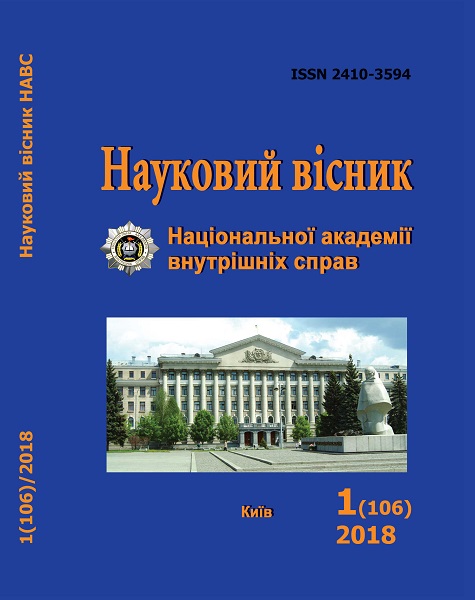«Free Sky» between Ukraine and the European Union: Improvement of Legal Regulation of Market of Aviation Transport
Abstract
The article analyzes the current state of the aviation transport market in Ukraine, analyzes the legal bases of state regulation in the field of civil aviation, defines the prospects for the development of the national aviation transport market, which are due to the signing of the Agreement between Ukraine and the EU on the Common Aviation Area and the disadvantages that may be caused by this. The author provided suggestions on improving the mechanisms of state regulation in the field of air transportation.
As a result of the addition of Ukraine to the airspace shared with the European Union, the domestic aviation market, like the consumer itself, can meet a number of issues that need to be solved, in particular:
1) aggravation of competition between national and foreign air carriers. According to experts, the agreement on the «free sky» provides the same rights to all carriers, but the possibilities to use these rights in European and domestic airlines are different. At the same time, there is a possible loss of international and part of domestic routes by domestic companies as a result of market liberalization (given the flow of transit passengers through the hubs of foreign companies), which will mean a reduction in revenues and budget revenues;
2) the presence of a small fleet of Ukrainian airline companies. Absence in Ukraine of a competitive national carrier and international transit hub, which will be able to provide air transportation in accordance with international standards and to a certain extent. As of today, Ukrainian airlines can not compete on an equal footing with other international companies in terms of combining airspace;
3) slow harmonization of Ukrainian technical standards with EU standards. Due to the problems of inadequate funding and material and technical and staffing provision, state institutions in the industry do not have time to implement a policy of adaptation of domestic norms and standards to EU legislation;
The domestic aviation market is based on the same basic principles and complex of measures, which is the whole national economy of the country. That is why, in order to avoid and minimize the negative consequences that can be attributed to the signing of the Open Skies Agreement for domestic air carriers and the economy of Ukraine as a whole, it is necessary to approach the problem solving in advance and in the process of complex solution of problems that may consist of a complex of measures, in particular:
– optimization of administrative and economic directions of aviation infrastructure development of the national aviation market;
– development of legal and economic mechanisms of state policy aimed at supporting domestic air carriers and their competitiveness, subject to the liberalization of the air transport market, taking into account the principles of the «open sky» with the European Union;
– provision of demonopolisation among domestic airlines on the domestic aviation market, as well as elimination of the monopoly in the field of airport supplies (airport ground handling, fuel supply, lighting, advertising, communications, etc.);
– attraction of non-state capital for the development and reconstruction of airports, in particular by attracting investments, as well as funds received from grants;
– replenishment of the fleet by increasing the number of aircraft by leasing, obtaining loans, etc.;
– ensuring the development of effective information campaigns on the promotion of the use of air transport and the use of services by domestic air carriers.
Downloads
Abstract views: 41 PDF Downloads: 41
- Authors reserve the right to authorship of their own work and transfer to the magazine the right of the first publication of this work under the terms of the Creative Commons Attribution License, which allows other persons to freely distribute published work with mandatory reference to authors of the original work and the first publication of an article in this magazine.
- Authors have the right to enter into separate additional agreements on non-exclusive dissemination of the work in the form in which it was published in the journal (for example, to post an article in the institution's repository or to publish as part of a monograph), provided that the link to the first publication of the work in this journal is maintained.
- The journal's policy allows and encourages the posting of articles by authors on the Internet (for example, in electronic storehouses of institutions or on personal websites), both before the submission of this manuscript to the editorial office and during its editorial processing, as this contributes to the creation of a productive scientific discussion and positively affects the efficiency and dynamics of citing the published work.




